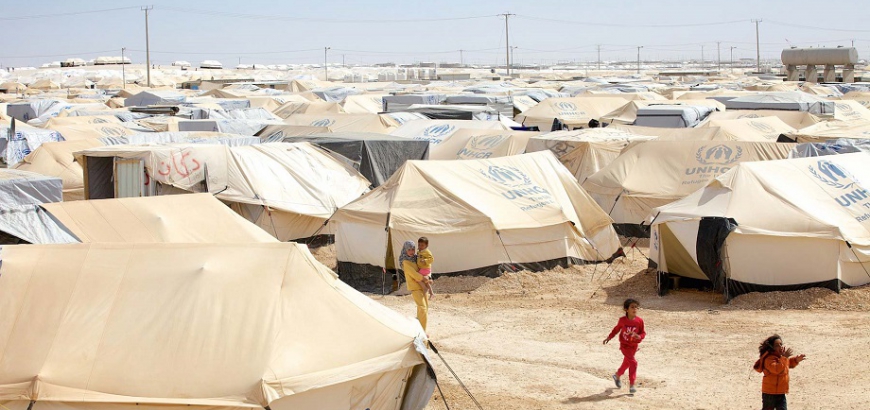Following the announcement of the truce in Syria’s southwest, Syrian refugees in Jordan have begun to hope of a return to their country after years as refugees. But a number of these refugees have said this hope quickly faded with news of the daily cease-fire violations.
On July 9, the cease-fire agreement went into effect between the forces of the Bashar al-Assad regime and the opposition in southwestern Syria, thanks to undeclared meetings which lasted months between the United States, Russia and Jordan.
Despite this, the war machine was not silent for long, as a number of truce areas were subjected to a series of violations by regime forces, striking a number of districts in Daraa province, which borders Jordan.
Mahmoud al-Hayek, 39, from the city of Tafas in western Daraa, said: “I hope to go back to my home in Syria, but in peace and security, and not as the situation is now, with the sounds of mortars we hear every day.” He added: “My children beg me on a daily basis not to go back there. The war is terrifying and we don’t want to die.”
Hayek continued, saying: “No one wants to remain in the diaspora far from his home and country, but the conditions don’t allow us to go back, and despite everything, I hope to reach a solution sooner rather than later so I can return to Syria.”
“If there is peace and security,” says Bassam Ahmad, 50, from the city of Dael in northern Daraa, “we will go back to our country without thinking about it.” This is a condition that many refugees stressed when speaking about a possible return to Syria.
Ahmad said that, “No one wants to stay away from his hometown, his neighbors, his family, his school and his childhood, and the life he spent with love with everyone. It’s inconceivable that any Syrian in any country would prefer to be far from the country he loves.”
Conditions of return
Regarding the possibility of refugees returning from Jordan to Syria, Col. Najem Abou al-Majed, commander in the Southern Front (part of the opposition Free Syrian Army), said: “There’s no doubt that most Syrians are waiting for the war to come to an end so they can return to their country in order to rebuild and reconstruct.”
Abou al-Majed continued: “The truce represents a glimmer of hope and a step toward achieving their dreams of bringing down the tyrant [Assad], releasing prisoners from the prisons and living a life of strength and pride for which they paid a heavy price.”
“The agreements in the south and in the Ghouta and Homs countryside up to the north represent a step in this direction, but the de-escalation agreements and deals cannot have legitimacy if there is no general will. The two parties to the conflict and the sponsor nations must reach an international decision under the roof of the United Nations,” he added.
Abou al-Majed described the issue of the refugees’ return as “A dream nearing achievement with the cease-fire agreements."
"Syrians left their homes in their millions out of fear of the brutality and oppression of the regime, searching for security,” he said. “It is not possible to talk about the return of refugees today if all the conditions of life are not available to them, especially security.”
The military commander stressed that, “The cease-fire must be achieved across Syrian territory by an international resolution, whereby Syria is cleansed of terrorism, represented in the ISIS organization.”
He also highlighted the need for “a political transition starting from a whole, undivided Syria, with a reconstruction campaign, as most of the areas under the control of the Free Syrian Army are in need of all life’s necessities… there is no infrastructure, as the regime has destroyed it throughout seven years of war.”
This article was translated and edited by The Syrian Observer. Responsibility for the information and views set out in this article lies entirely with the author.


